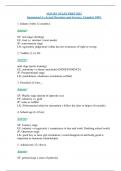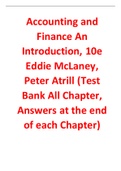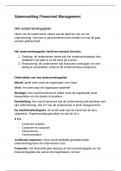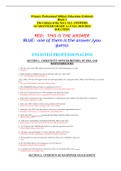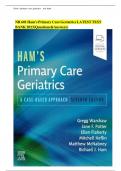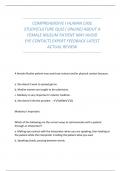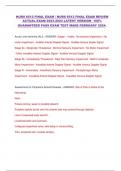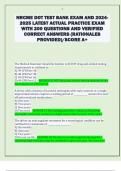Exam (elaborations)
Exam (elaborations) CIV 3701 CIV CIV 3701 CIVIL PROCEDURE LATEST COMPLETE REVISION EXAM STUDY PACK SEMESTER 1 – ASSIGNMENTS WITH MEM0S
- Module
- Institution
Exam (elaborations) CIV 3701 CIV CIV 3701 CIVIL PROCEDURE LATEST COMPLETE REVISION EXAM STUDY PACK
[Show more]




